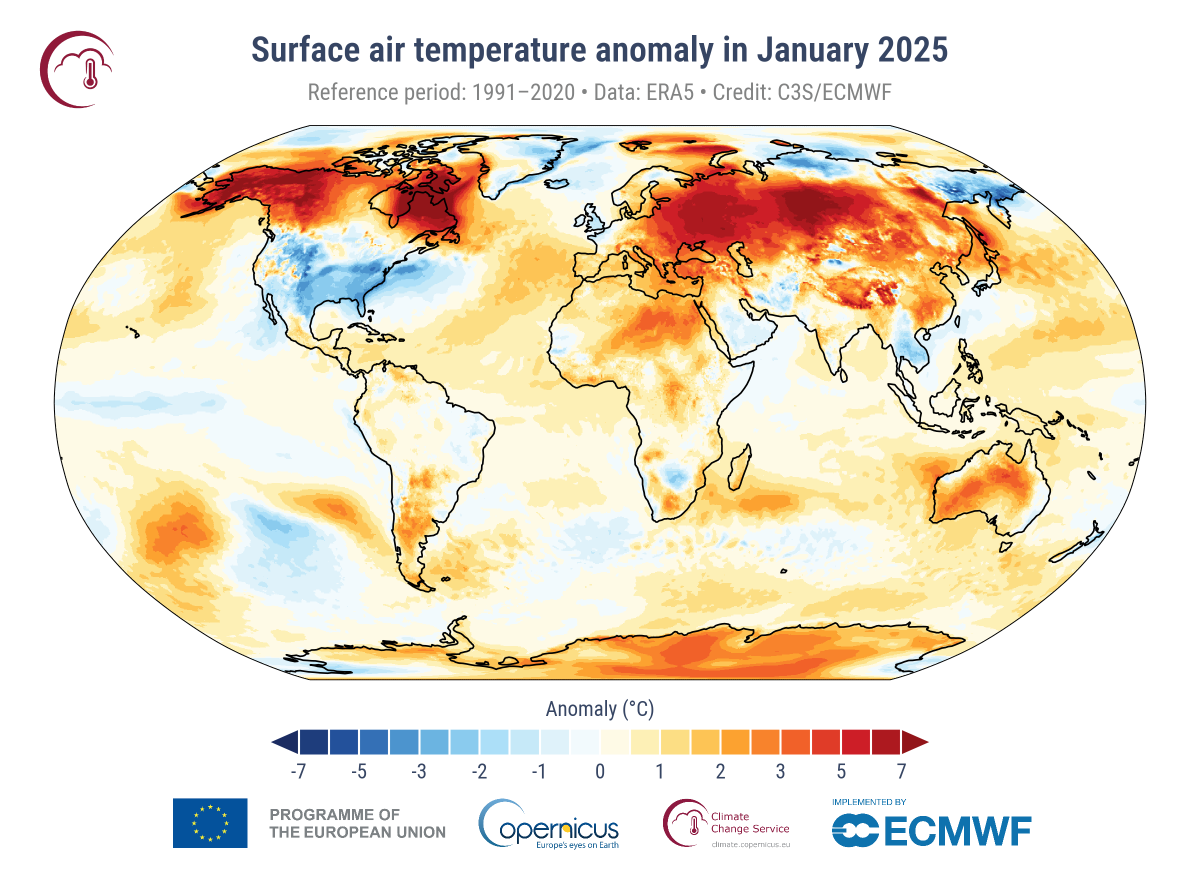Last month was the hottest January in global recorded history despite the impact of an ocean cooling La Niña event.
The findings have been reported by Copernicus, the Earth observation component of the European Union's Space Program.
It was found that average air temperature globally in January was 0.79 C above average for the 1991–2020 period, and 1.7 C above pre-industrial levels.
"The fact that the latest robust Copernicus data reveals the January just gone was the hottest on record, despite an emerging La Niña, which typically has a cooling effect, is both astonishing and, frankly terrifying," said Bill McGuire, Emeritus Professor of Geophysical and Climate Hazards at University College London.

The high global average for January comes despite many parts of the world experiencing below average temperatures for the month.
The continental United States went against the global trend, as temperatures were 'notably below average' reported Copernicus.
Other parts of the world that were also below normal were eastern Russia, the Arabian Peninsula and mainland Southeast Asia.
"Having crashed through the 1.5 C limit in 2024, the climate is showing no signs of wanting to dip under it again, reflected by the fact that this is the 18th of the last 19 months to see the global temperature rise since pre-industrial times top 1.5 C," said McGuire.
"On the basis of the Valencia floods and apocalyptic LA wildfires, I don't think there can be any doubt that dangerous, all-pervasive, climate breakdown has arrived.
"Yet emissions continue to rise, while fossil fuel corporations seek to expand operations. Grim doesn't even begin to describe our prospects."
The latest findings follow on from reports that the last 12 months have seen temperatures 0.73C above average and 1.61C above pre-industrial levels.
Scientists have said that January was the hottest on record because countries around the world are still burning huge amounts of oil, gas and coal.
Dangerous Levels of Warming
"Sure El Niño and La Niña add or take a tiny bit of warming, but the reason we've broken another record is the continued burning of fossil fuels," said Friederike Otto, senior lecturer at the Centre for Environmental Policy at Imperial College London.
"The LA wildfires were a stark reminder that we have already reached an incredibly dangerous level of warming," said Otto.
"We'll see many more unprecedented extreme weather events in 2025
"If politicians really care about people's lives and their children's futures, transitioning away from fossil fuels would need to be top of their agenda, to make the world safer and fairer.
"This data shows very clearly what hundreds of other high-quality analyses have shown in recent decades–more burning of fossil fuels leads to more emissions that lead to more warming."
Do you have a tip on a science story that Newsweek should be covering? Do you have a question about climate change? Let us know via science@newsweek.com.














)





 English (US) ·
English (US) ·